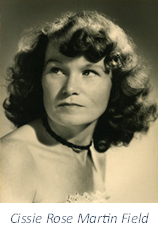Family Vignette--Grace Wharton
You may recall the name of Grace Wharton. She was the wife of Ernest James Martin, who
died in 1916 in Picardie, France during World War I. Although Grace and Ernest had two children
during their marriage, Grace also had a third child.
Grace Wharton was born on August 30, 1894 in Lowestoft,
Suffolk, England the daughter of Anna Maria Meen 1852-1919 and William John
Flegg 1859-1915. One may immediately
question how Grace was named Wharton if her mother’s maiden name was Meen and
her father’s name was Flegg. This led to
an interesting investigation into the life of Anna Maria Meen.
Anna Maria Meen was born on March 25, 1852 in Stradbroke,
Suffolk, England to William Meen 1824-1902 and Sarah Covell 1824-1853. In October 1871, she married John Wharton in
Hoxne, Suffolk, England. John and Anna
had two children.
1. Ellen Kate Wharton 1872-1911
2. Arthur John Wharton 1873-1940
On October 10, 1875. John Wharton was admitted to the asylum
(likely for tuberculosis). He remained
at the asylum until his death on April 1895.
It isn’t certain in what year Anna Maria Meen gave up her two children,
but by 1881, both children were living as paupers at the Union District School in
Wortham Ling. By 1891, Ellen Kate was
working as a servant for the Saunders family in the South Norfolk parish of
Shelfanger and then as a servant in 1901 for Robert Parke in Wortham. She continued working for the Parke family as
a servant until her death in 1911 at the age of 38. Arthur was much luckier than his sister. In 1891 he was lodging and working as a farm
servant. At the time of his father’s
death, Arthur was left the grand total of £30 after probate. By the time he was 27, in 1901, Arthur was
working for the railway as an engine stoker.
In April 1901, Arthur married Louisa Hurst in Newark,
Nottinghamshire. Arthur and Louisa had
six children, one of whom died at the age of three years old. By 1911, he continued working for the Midland
Railway as a locomotive fireman. Arthur
died at the Rotherham Hospital, Doncaster Gate on August 27, 1940.
After abandoning her two children from her husband, John
Wharton, Anna Maria Wharton nee Meen began an affair with an agricultural
labourer named Charles Warren sometime in 1877.
In 1881, she is listed as the housekeeper for Charles Warren and living
with him in Darsham together with their illegitimate son Frederick William
Wharton. By 1884, she abandoned Charles
Warren and her son and in 1891, Charles and his son were living with his
parents who helped him raise his child.
In 1891, Anna Maria Wharton was living as a boarder with a
dock laborourer, William Flegg. In
addition, their two illegitimate children Mabel Wharton and Thomas Wharton were
listed on the census, as well. In 1892,
their son Frederick Edward Wharton was born followed by Grace Wharton in 1894.
After her husband John Wharton died in 1895, Anna Maria
Wharton married William Flegg in December 1902.
Grace Wharton didn’t have much of a role model for
motherhood and her life was cut too short to offer much of a chance to
improve. But life was so much different
for our ancestors. We can only hope that
our own children grow up to be the role models we have strived to be in our own
lifetime.




Comments
Post a Comment